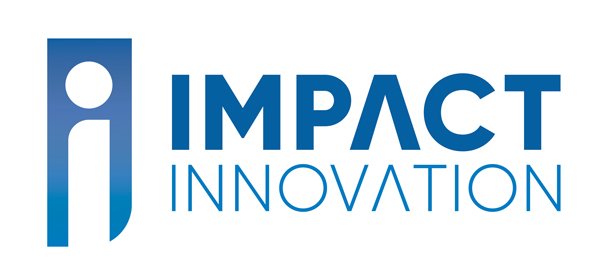"The range of support from the Business Wales Accelerated Growth Programme shows just how helpful this programme is for entrepreneurs and business leaders."
It sounds like an apocryphal tale from the business world – the apprentice who starts on the shop floor before eventually becoming managing director.
But that is precisely what happened at Newport-based Industrial Door Services (IDS), where Floyd Manship took charge of the company after working his way up through the ranks to take over the leadership of the business when its founder stood down.
Established in 1987, IDS started manufacturing basic industrial roller shutter doors. In the following years, with investment in product development, the firm developed a more comprehensive range of products. The company then introduced more doors to suit various applications and environments.
IDS has been supported through Business Wales Accelerated Growth Programme (AGP). The AGP provides targeted support for ambitious growing firms. The programme is part-funded by the European Regional Development Fund through the Welsh Government.
Floyd Manship explains how the Business Wales Accelerated Growth Programme has supported the company's growth and shares his story - from apprentice to managing director.
Tell us about IDS
When I knocked on the door of Industrial Door Services 24 years ago to speak to the then-managing director and ask about an apprenticeship, I never dreamed that one day I'd own the business and make it even bigger and more profitable! But, with that one knock, I set myself on a course to eventually own a company producing industrial doors for clients such as Rolls Royce, HM Prisons, Royal Air Force, and BBC Securicor, to name a few.
We make and service high-quality products, and we've achieved our goal of becoming a sector leader. Everyone here at IDS is proud of our array of UKAS Management Systems accreditations- ISO 9001 (Quality Management), ISO 14001 (Environmental) ISO 45001 (Occupational Health and Safety).
I'd describe myself as a "boy from the streets in Bettws, Newport"! I quickly came up through the business and have worked in almost every area. My natural qualities as a problem solver and my work ethic led to the owner asking me one day if I'd like to buy the business.
At stake at the time were the skilled jobs of my workmates, as another interested party wanted to buy the brand and close down the manufacturing operation. We now employ 35 people. The workforce is also more diverse.
I'm the first to admit I had no business management skills, especially in financial management. However, support from the Business Wales Accelerated Growth Programme has helped me develop as a manager and professionalise the business.
We have a high duty of care to our employees and are committed to ensuring work-life balance. I am passionate about upskilling the workforce and have invested more than £40,000 in helping staff achieve new qualifications. I'm particularly pleased that more established team members have actively participated in learning. We've been very forward-thinking in succession planning and have apprentices in many departments across the business.
IDS has a bright future ahead, and without wanting to sound like a broken record, we're so proud of our history too.
What are your proudest moments in business so far?
Something I think gives me lots of satisfaction, is how we've diversified our workforce and brought more women into the business. As a result, the culture of the company has changed. And we're also giving youngsters the opportunity for a promising career. Something else we've managed to do is win back lost contracts because I ensured that the business listened to customers and improved as a result.
The number of people in the company following accredited skills training has increased, and that improvement in our staff's skillset has given me a real sense of pride. It's great to see professional development happening across the business.
What challenges have you faced in business?Firstly, I think my lack of business skills, especially in finance, was a challenge. But I was a quick learner – I had to be! – and was open to advice and learning. Other challenges were learning to balance sales with the capacity of the business to produce and provide service. A sales-driven strategy created stress on the workforce and created a lot of problems. So that's been a learning curve as a business leader.
During the pandemic, we ran a rota system to ensure service was continued along with limited manufacturing.
If you were starting again, what would you do differently?
As I mentioned, I would not have pushed sales so hard until I sorted some of the fundamentals throughout the business.
I also think I would have invested in externally accredited training earlier.
How has support from Business Wales AGP helped your business?
The Business Wales Accelerated Growth Programme has given me some beneficial support, particularly with my growth as a business leader. I'd never led a business before, so that was invaluable support.
We've also received support with management and organisational development, manufacturing effectiveness, sales and marketing. The sheer range of support from the Business Wales Accelerated Growth Programme shows how helpful this programme is for entrepreneurs and business leaders.
What advice and guidance would you give other businesses starting out?
Modernise a traditional business with technology
Don't run ahead of your capacity to deliver good products and service, as it risks damaging your reputation
Don't be afraid to say no to opportunities that you can't deliver on or make money from
Get feedback from your customers, especially when they are not happy
Learn from your mistakes
To learn more about IDS, visit here.
Further information on the Business Wales Accelerated Growth Programme
"The range of support from the Business Wales Accelerated Growth Programme shows just how helpful this programme is for entrepreneurs and business leaders."
The Business Wales Accelerated Growth Programme is a pan-Wales programme part funded by the European Regional Development Fund through the Welsh Government.









